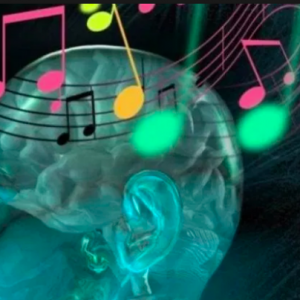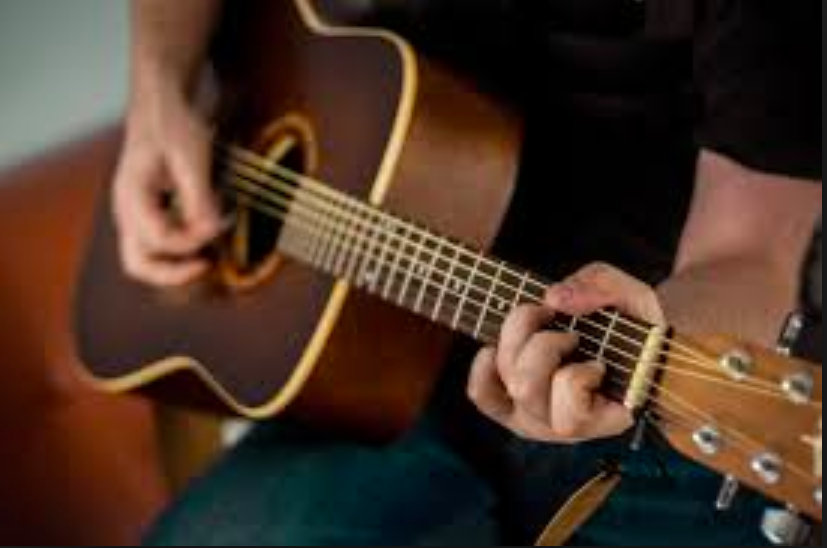Playing music for yourself and others is a creative, joyful activity. It’s soothing. It puts you in touch with your most intimate self.
But did you know it can boost your brainpower, too?
Over the last couple decades, reams of research have revealed how music can physically and even dramatically improve your brain and its cognitive processes — strengthening memory, reducing anxiety and, even, alleviating depression. And that’s just for starters.
What’s more, strumming a guitar, playing Mozart on the piano or even just banging on some drums, studies show, will improve your brain in ways you will actually notice.
Musical training improves cognitive abilities
Whether you’re into music yourself or you have friends who play a musical instrument, be it a guitar, an electric ukulele, or drums, you’ve already experienced the outward brain benefits of playing music. After all, everyone knows how happy music can improve your mood and why singing the blues can feel like such a release after a really bad breakup.
Inside your brain, the effects of music are easily seen, too. For instance, researchers in Britain say that playing music appears to increase blood flow to the left hemisphere of the brain. That’s the part of the brain responsible for music as well as language processing. In that 2014 study, the scientists noticed that non-musicians taught to play musical instruments rapidly improved in their ability to solve the word puzzles researchers gave them.

Those improvements can translate into improved ability to listen and understand in a noisy or distracting classroom environment, according to to a 2012 study that compared children who played an instrument and those who didn’t. Still other studies posit that music can improve reading and other language problems experienced by kids with dyslexia and other learning disorders.
Those improvements, scientists say, can be quite dramatic.
University of Southern California researchers who studied 49 six and seven-year-olds over the course of five years published a study in 2016 suggesting that music training appears to accelerate brain development, especially that part of the brain in charge of auditory processing. Using MRI, EEG and behavioral testing, those researchers concluded that the kids who studied music had more mature auditory processing capabilities, which likely translates into better reading, writing, comprehension and speaking skills.
Moreover, playing a musical instrument involves using several sensory abilities at once. That explains why some studies show that musicians are better at multitasking.
Healing Brains
Other studies show that music can heal, too. For instance, neuropsychologists at Otto von Guericke University in Germany demonstrated that regular piano or drum pad practice triggered motor skill improvement in patients recovering from strokes.
Even stroke patients with zero previous musical experience, scientists say, enjoyed vastly improved motor improvement after just 15 practice periods over a three week period. Since that 2007 study, dozens more have affirmed those findings.
In 2011, scientists in Barcelona performed functional magnetic resonance imaging (fMRI) and 3D movement studies on 20 recovering stroke patients after four weeks of piano and drum pad practice. Not only were the patients able to better walk, but their brains showed notable evidence of healing after just four weeks.
Music intervention also can reduce symptoms in schizophrenics, a more recent study reveals. Music training might improve cognitive pathways and sensorimotor problems in patients with cerebral palsy as well, researchers in Germany say.
Overall Improvements
But you don’t need to suffer from a brain injury, mental illness, depression or other cognitive problem to enjoy intense benefits from music training. Scientists have long theorized that music improves the brain’s executive function, which covers a variety of tasks including problem-solving, decision-making and information-processing.
And now, thanks to MRI and other tools, they can see those improvements in the brain as they happen.
Enjoying the biochemical benefits mentioned above may take time yet playing a musical instrument has non-material benefits that can be enjoyed sooner and they regard the social bonds one can create when engaging in such activities.
Music does not just gather people with similar mindsets and interests but helps them connect at a far more profound level.
Playing in a band, for example, will help you know your fellow musicians in a different way than when doing other things together. Yes, syncing with your band colleague playing the bass while you’re trying to keep your drum rhythm may bring out unpleasant reactions, too, but that’s part of knowing someone.
Then, getting that key right after several unsuccessful attempts has a charm of its own and triggers satisfaction and contentment. As simple as that may seem, such a victorious moment will help you feel good and relax. Studies have also found that therapies involving listening to music or playing a musical instrument have lowered anxiety and depression.
Many people resort to creative activities to enjoy that sense of rejuvenation and playing the guitar, ukes, or any other instrument will help you experience that as well. Last but not least, playing a musical instrument will help you discover your sonic personality and express your idea of beauty through sounds.
Listening to a song you’ve composed is another way to look in the mirror, after all. I suggest you try it.
For aNewDomain in Hong Kong, I’m Gina Smith.
Cover image: Pexel, All Rights Reserved. Inset image: CliffCentral.Com













